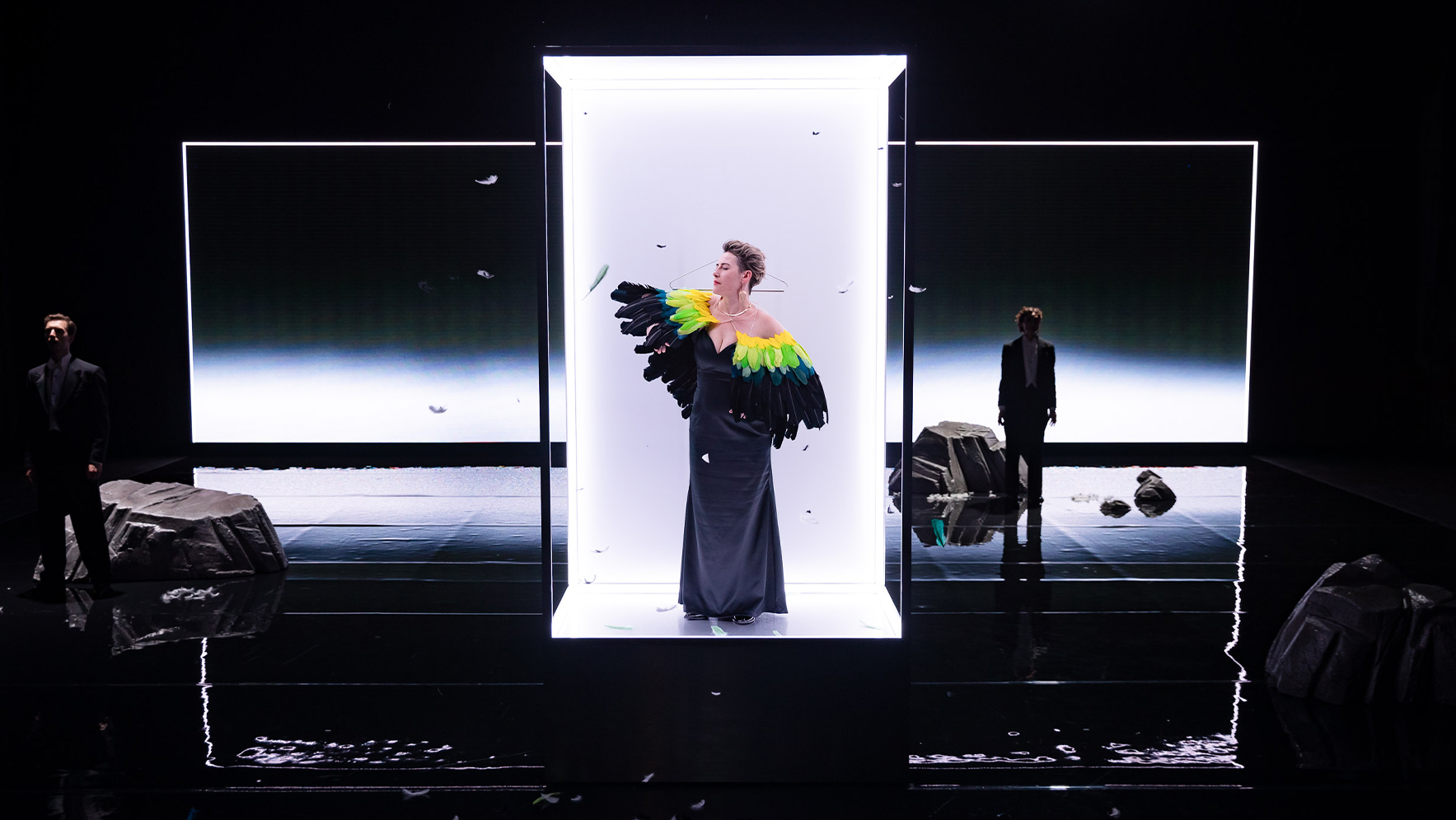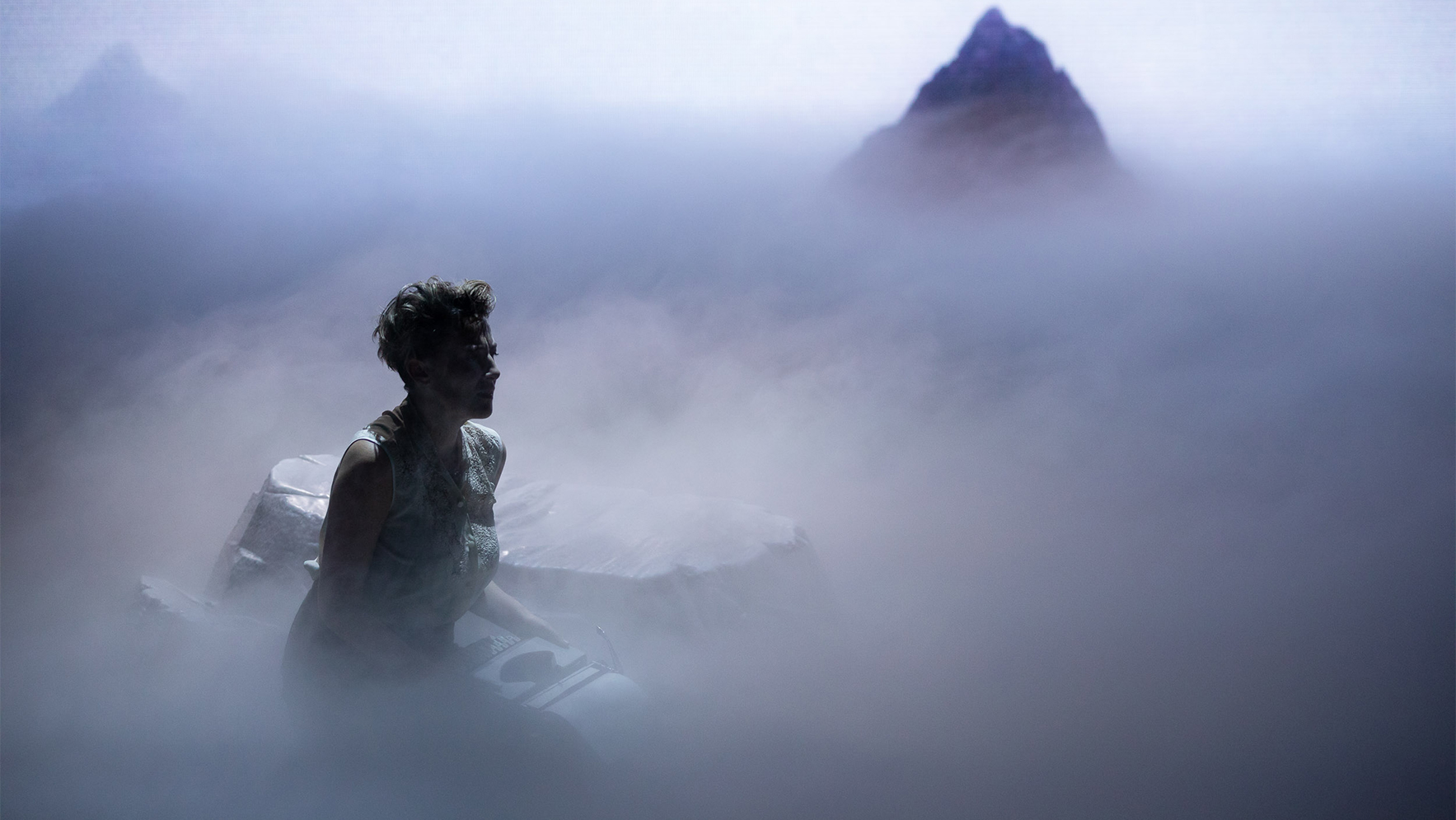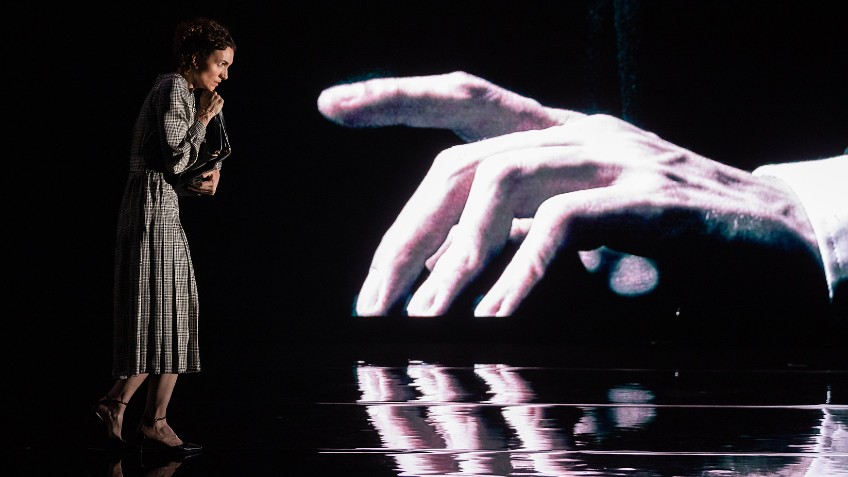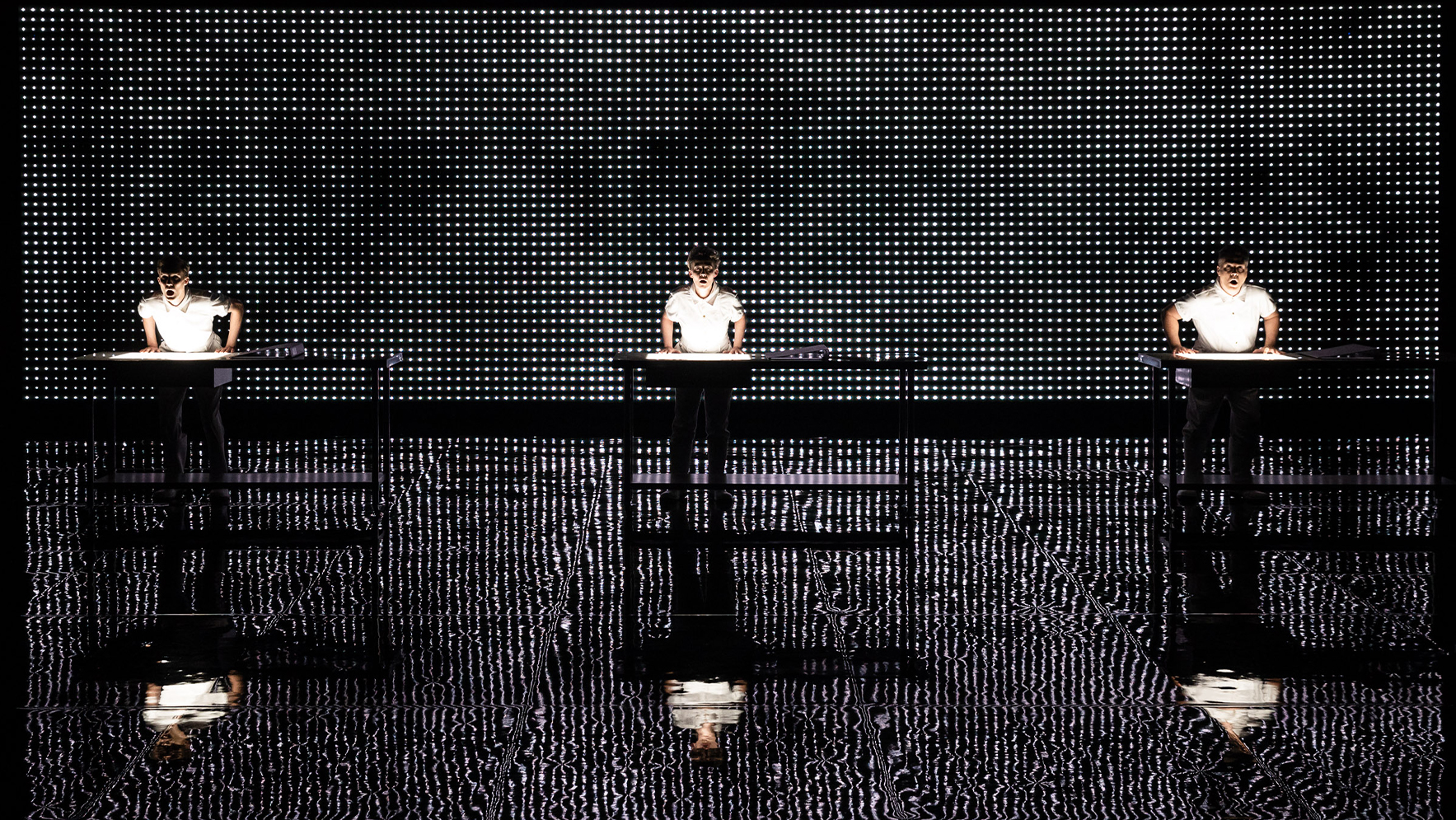Breaking Glass
Breaking Glass is the result of two years of working with four exceptionally talented composers whose voices are essential as opera moves into the third decade of the 21st century. The stories these women are telling through this endlessly reinvented artform could not and would not be told anywhere else, by anyone else. Opera still has a long way to go in addressing its historical inequities, but this project is the natural outgrowth of SCO’s commitment to gender equality in the lead artists making our work. Quite apart from representation, most importantly the quality of the music, text and possibilities for drama afforded by these pieces is outstanding and it has been a great pleasure watching them evolve into an exciting and diverse evening of genuinely new propositions for the future of opera.
In less than half an hour each, these operas instantly and incisively create new worlds: The Tent is a deeply original sonic environment of great subtlety, ambiguity and transformed expression, just as Commute is direct, propulsive and gritty, gradually revealing a hopeful dawn. Her Dark Marauder is an expressionistic nightmare, powerfully amplifying the detail of the human breath and psyche, whilst The Invisible Bird is a true epic travelling through comedy, repose and lament, re-emerging with a visionary energy.
SCO’s greatest thanks are to the Sydney Conservatorium of Music, whose Composing Women Program begat this project and to our home at Carriageworks who so consistently support us in being this country’s most active and fearless creators of new opera.
– Jack Symonds, Artistic Director, Sydney Chamber Opera
Directors' Notes
Her Dark Marauder
On a sunny morning, Sylvia Plath perches on a stone by the seaside that she loved, trying to draft a new poem on the typewriter sitting on her lap. A simple task, were it not for the dissolving parts of her inner self, and the swirling thoughts and feelings echoed by all four of them as real time expands into a relentless spiral.
Depressive disorders are challenging to discuss and depict, for the plainly ontological reason that their true nature is largely invisible. It’s why the depressed often illustrate them using tropes that denote nature: articulating the mind’s tempest of thoughts and feelings through words feels more impossible than simply describing one’s mind as a tempest. But Plath is an exception to the language-is-abortive rule: her writing eloquently intimates that her relationship with the shadowy passenger of depression attacked her sense of self and left her feeling robbed of courage, clarity, confidence, creativity and success.
Given the visceral poetry of both her oeuvre and Georgia Scott’s score, shaping a landscape that reflected Plath’s mind and offered expressive archetypes of the universal psyche felt essential. The work subsequently functions as a sensorial experience that regards empathy as a destination: if melancholia could be rendered experiential, then perhaps we all might better understand its depths.
Commute
Commute, at its simplest, is the story of a woman’s journey home. Of course, anyone that has lived this journey knows how complicated, fearful and alienating this experience can be. The composer Peggy Polias has cleverly woven in the story of Odysseus, giving our female protagonist license to be both the victim and the hero, to express the darkest imaginings of the female experience while giving her agency and hope of safety.
It has been both thrilling and humbling to guide this work to life. It has never been more important to unpack and explore the experiences of women, even those that are seemingly pedestrian.
The Tent
Margaret Atwood’s short story of the same name conjures a singular image: by candlelight, a human figure scribbles across the walls of their canvas tent as howling winds and wolves descend upon them. It evokes creation as an act of self-preservation when under threat, and Josephine Macken has effortlessly reframed that notion within the realm of science fiction. Or perhaps I should say speculative fiction, because a dystopia caused by environmental trauma is a scenario that’s frighteningly upon us.
The piece is set in a totalitarian society somewhere in the near future, where mass extinction sparked by ecological disaster has destroyed the natural world and left only fragments of the Anthropocene era behind. To capture the preserved remnants, a small team of researchers have built a sentient supercomputer that can independently process and record these earth-traced, but as it begins to outprocess its human operators, the machine begins to develop a mind of its own…
The dreamlike, almost entirely wordless score invites us to contemplate mythologies of presence, absence, loss and consciousness. It seemed fitting, then, to devise a ritualistic language of signs and symbols: conversant markers used by machines, and by us when our own emotional and linguistic mechanisms inevitably break down – revealing a space where the symbiosis between mortals and machines might be reforged.
The Invisible Bird
Once thought extinct, The Night Parrot is discovered to have survived the ravages of colonisation and deforestation. Throughout The Invisible Bird, we live her history and witness the attempts to silence her. This work couldn’t come at a more poignant moment in history. It speaks to the stifling of women’s stories, and the irrepressible power of survival.
– Danielle Maas and Clemence Williams, Directors
Composers' Notes
The Tent
In the ongoing advent of ecological catastrophe, a small team of researchers feed traces of knowledge to an intelligent machine of their own design, tasked with eventually encoding the value and qualities of subjects-at-risk. The title is taken from Margaret Atwood’s short story of the same name; the work is conceptually framed by this text.
– Josephine Macken, Composer
Commute
A daily public commute, a homeward journey, retold in episodes inspired by Ancient Greek myth and in particular Homer’s Odyssey. The protagonist Odyssea’s journey “from A to B” is an interior one, from the dread and/or occurrence of street harassment to a state of relief, of freedom to move through the city. The voices of the two ‘Suitors’ re-enact mythical monsters who gradually lose their potency, transforming back into mere men.
– Peggy Polias, Composer
Her Dark Marauder
Her Dark Marauder is based around a reimagining of ideas put forth in the works of Sylvia Plath and explores societal expectations of conformity to roles. The structure of the work responds to ‘The Fries Test’ and aims to first investigate and then break down the theatrical tropes often presented in the characterisation and storytelling around characters with physical or psychosocial disabilities.
The work begins in a place of innocence and unbridled self-expression as the voice is deconstructed into a world of articulations ‘beyond words’ (Stephen Connor, 2014) and slowly draws further and further inwards, delving into the interplay between the physical, mental and spiritual in the wake of a diagnosis.
– Georgia Scott, Composer
The Invisible Bird
The Invisible Bird examines links between the parallel issues of invisibility and inequality, colonisation and extinction through the mysterious and controversial story of the Night Parrot – a rare Australian bird which was lost, presumed extinct, for almost 100 years.
The libretto is based largely on the scientific Latin names of endangered, near-threatened, vulnerable and extinct Australian birds and morphs in a musical palindrome from egalitarian polyphony, binary confinement, monotonal chant and back again.
-Bree van Reyk, Composer
SCO Company Credits
SCO Artistic Director Jack Symonds
Principal Artistic Associate Huw Belling
SCO Artistic Associates Danielle Maas, Mitchell Riley, Jane Sheldon, James Wannan, Pierce Wilcox
SCO Board Christine Williams (Chair), Ban-Foo Leong, Chris Morrison, Patrick Nolan, Penelope Stannard, Jack Symonds, Maryam Tabari
Production Supporters
The Tent is proudly supported by & dedicated to Penelope Seidler AM
Commute is proudly supported by & dedicated to Prof Di Yerbury AO
Producers Anonymous (1), John Barrer, Neil Burns, Martin Dickson AM & Susie Dickson, The Johnson Family Foundation through the Myer Foundation, The Russel Mills Foundation, The Sydney Community Foundation’s Women Composers Fund and its associated donors.
Associate Producers Jim Alexander & Kathir Ponnusamy, Andrew Andersons AO, Gil Appleton, John Kaldor AO, James Williams.



